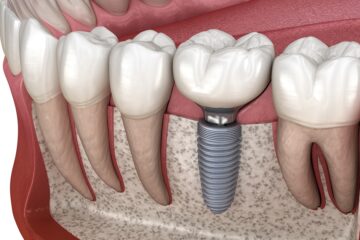
Healthy gums are essential for having healthy teeth and a confident smile. More often than not, people ignore early signs of gum disease, which can lead to severe complications such as tooth loss. Your dentist can recommend the right oral care products and hygiene habits, along with treatments that may help. If you are seeing a Tukwila dentist for scaling and root planning, here are some things to know.
Deep cleaning for your gums
For the unversed, scaling and root planing is a deep cleaning procedure. Periodontists or dentists can perform this non-surgical procedure, which involves the removal of tartar and plaque from the surface of your teeth. They will also clean below the gumline to remove the remaining bacteria. The first step is scaling, which involves using instruments that remove tartar and plaque, and many clinics now rely on ultrasonic instruments for precision. The second step is root planing, which consists of smoothening the teeth roots to remove bacteria. If you have gum disease, scaling will help your gums to reattach with the teeth.
“Do I need scaling and root planning?”
Your dentist is the best person to answer that question, and they will usually start with an oral exam. The foremost reason to consider scaling and root planing is to stop the progression of gingivitis, which is the early stage of gum disease. If you have inflammation in the gums, it is a sign of gum disease, and both scaling and root planing can help avoid further complications. The procedure can also prevent tooth loss and improve your overall oral hygiene.
What to do after the procedure?
Following scaling and root planing, your dentist will recommend sticking to an oral hygiene routine, including brushing and flossing twice daily and using antimicrobial mouthwash. You should schedule appointments with your dentist regularly to address gum concerns.
Other things to know
It is okay to bleed a little from your gums during scaling and root planing. Removing the tartar using the instruments can cause bleeding, which will usually stop immediately. If you have an extreme buildup of plaque, the procedure can take longer, but cleaning can be completed in less than an hour. There are several signs of gum disease, which must keep an eye on, such as bleeding while brushing and flossing, bad breath, and loose teeth.
The good news is early gum disease is reversible, and scaling and root planing are ideal for early treatment.
How to Take Care of Dental Health in Post-Dental Implant?
March 14, 2024What Are the Advantages of Having a Family Dentist?
February 19, 2024
Comments are closed.
-
A Guide to Intimacy for Seniors
November 4, 2022 -
An Internet Application Testing Plan in 10 Simple Steps
July 11, 2020





